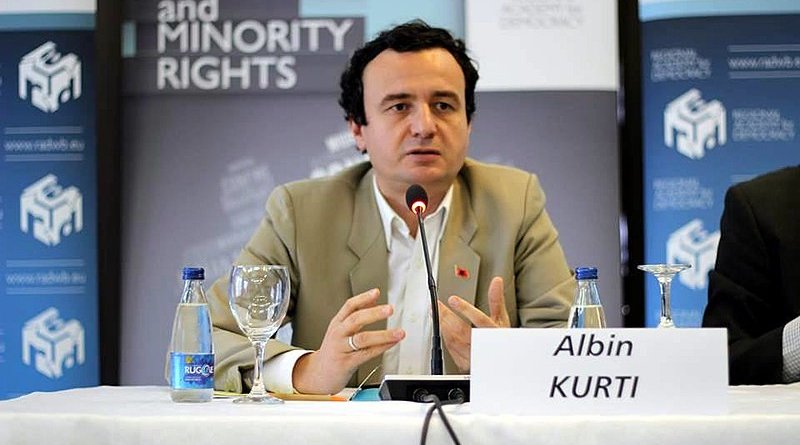Kosovo: No-Confidence Vote Topples Kurti Government
Defying international calls to act more responsibly at a time of crisis, MPs in Kosovo successfully overthrew the government in a no-confidence motion on Wednesday, leaving the country rudderless.
By Xhorxhina Bami
The Kosovo government led by Albin Kurti was overthrown on Wednesday by a no-confidence motion initiated by the junior party in the governing coalition, the Democratic League of Kosovo, LDK.
With 82 votes in favour, 32 against, and 1 abstention, the government was bought down following a series of disputes over important decisions between the main governing Vetevendosje party, to which Kurti belongs, and the LDK.
The speaker of parliament, Vjosa Osmani, herself a member of LDK, declared her opposition to the motion.
In a speech at parliament, she said, “I disagree with the motion of no confidence, so much more at the moment [in regards to the global coronavirus pandemic]. I am against any agreement with PAN, and I do not want to break the trust of citizens at any cost, so I will vote against the motion”.
Osmani, together with the deputy speaker, Arberie Nagavci, from Vetevendosje, opposed holding the vote at an Assembly presidency meeting on Tuesday.
Late on Tuesday, in a debate on the TV station T7, the LDK deputy leader and former interior minister Agim Veliu – whose dismissal caused the LDK to file the no-confidence motion – accused Osmani of “betrayal”.
The decision to file the motion in the midst of the coronavirus pandemic has shocked many experts, citizens of Kosovo and international officials.
Many people have staged daily protests against the political wrangling for six days in a row from their balconies while in self-isolation.
Banging kitchen utensils, they staged another protest at around 11am on Wednesday, when the extraordinary parliamentary session started.
The activist group Replike (Comeback), which initiated the balcony protests, said the political class had again shown it was “irresponsible … inhumane … and how much it fights for party interests and personal gain”, adding that “we the citizens of Kosovo are not sheep for them to play with our health and the public interest”.
Some political analysts have set up online petitions calling on the politicians to focus on measures to prevent the spread of the coronavirus, not on the no-confidence motion.
International representatives in Kosovo have been deeply divided over the wisdom of the LDK action.
In a joint statement on Tuesday, the so-called QUINT countries – the US, Britain, France, Germany and Italy, – urged Kosovo leaders “to preserve and ensure the integrity and functionality of Kosovo’s government” in accordance with the constitution.
But the US ambassador to Kosovo, Philip Kosnett, appeared to support the LDK move, saying he was “pleased to see the Assembly will hold a session on the no-confidence vote tomorrow”.
However, the German EU rapporteur to Kosovo, Viola Cramon, slated the no-confidence motion as “unbelievable. Irresponsible. I feel terribly sorry for the citizens of #Kosovo. They don’t deserve this”.
“Really worrying political situation in #Kosovo. In times of crisis, politicians must stand together and protect their citizens! Crucial now to ensure effective response to #COVID-19 – not overthrow the government. Act responsibly!” she added.
Earlier on Tuesday, Germany and France, via a joint tweet from German ambassador Christian Heldt, also urged the LDK “to reconsider the no-confidence vote”. Heldt later emphasized in another tweet that it was “crucial now to ensure effective response to COVID-19 – not overthrow the government”.
The new government in Kosovo has been divided and fragile from the start. Coalition-forming negotiations lasted for around four months after October 6, 2019, snap elections, held after former prime minister Ramush Haradinaj resigned to obey a summons to the Kosovo Special Chambers in the Hague in July 2019 to answer war crime allegations.
The latest dispute between the parties in government involved the coronavirus, which has infected 63 known people in Kosovo.
After President Hashim Thaci signed a decree declaring a state of emergency, Kurti opposed it, fearing the government would lose effective control of the country. Following the no-confidence motion. Kurti’s government will remain temporarily in office until a decision on the next steps is made.

